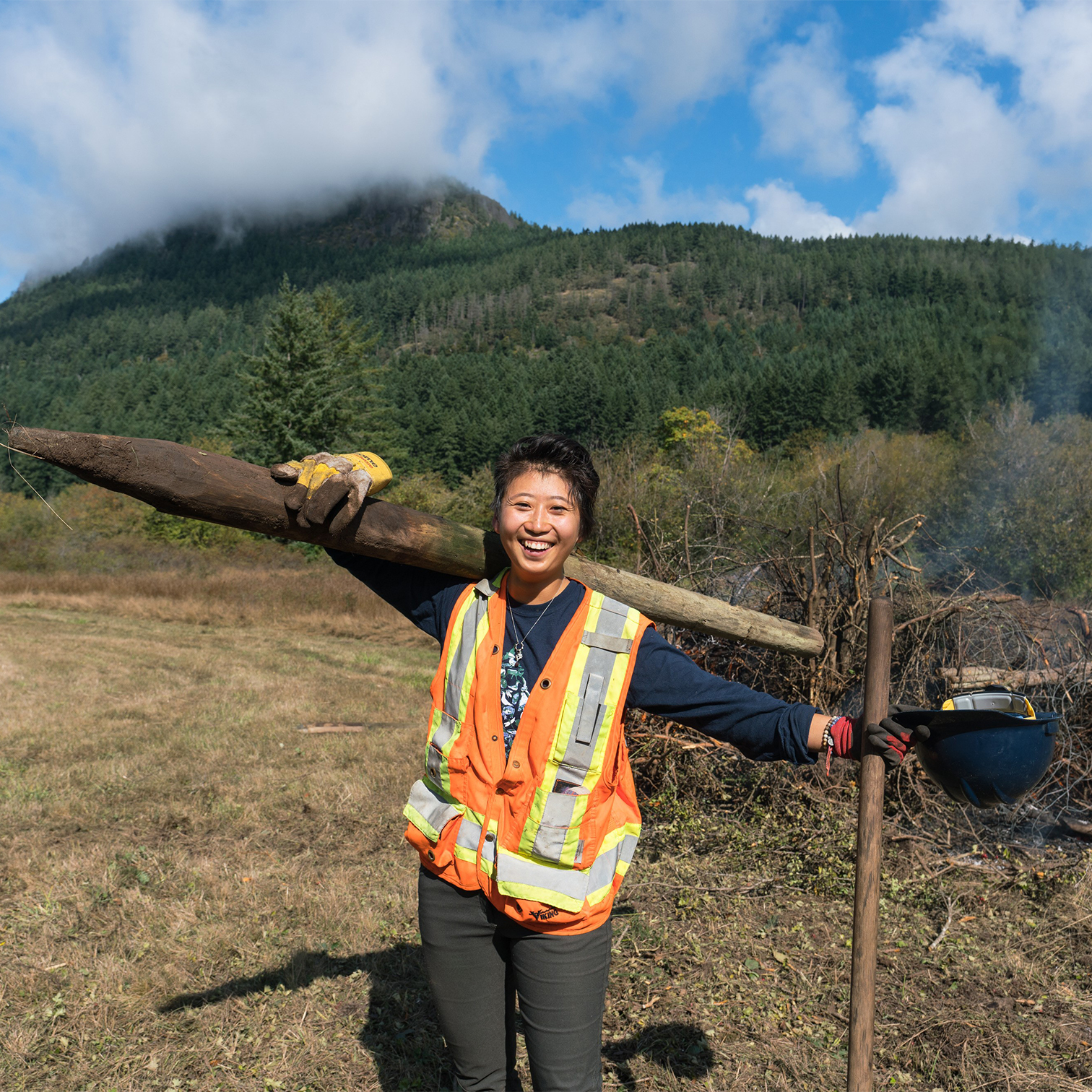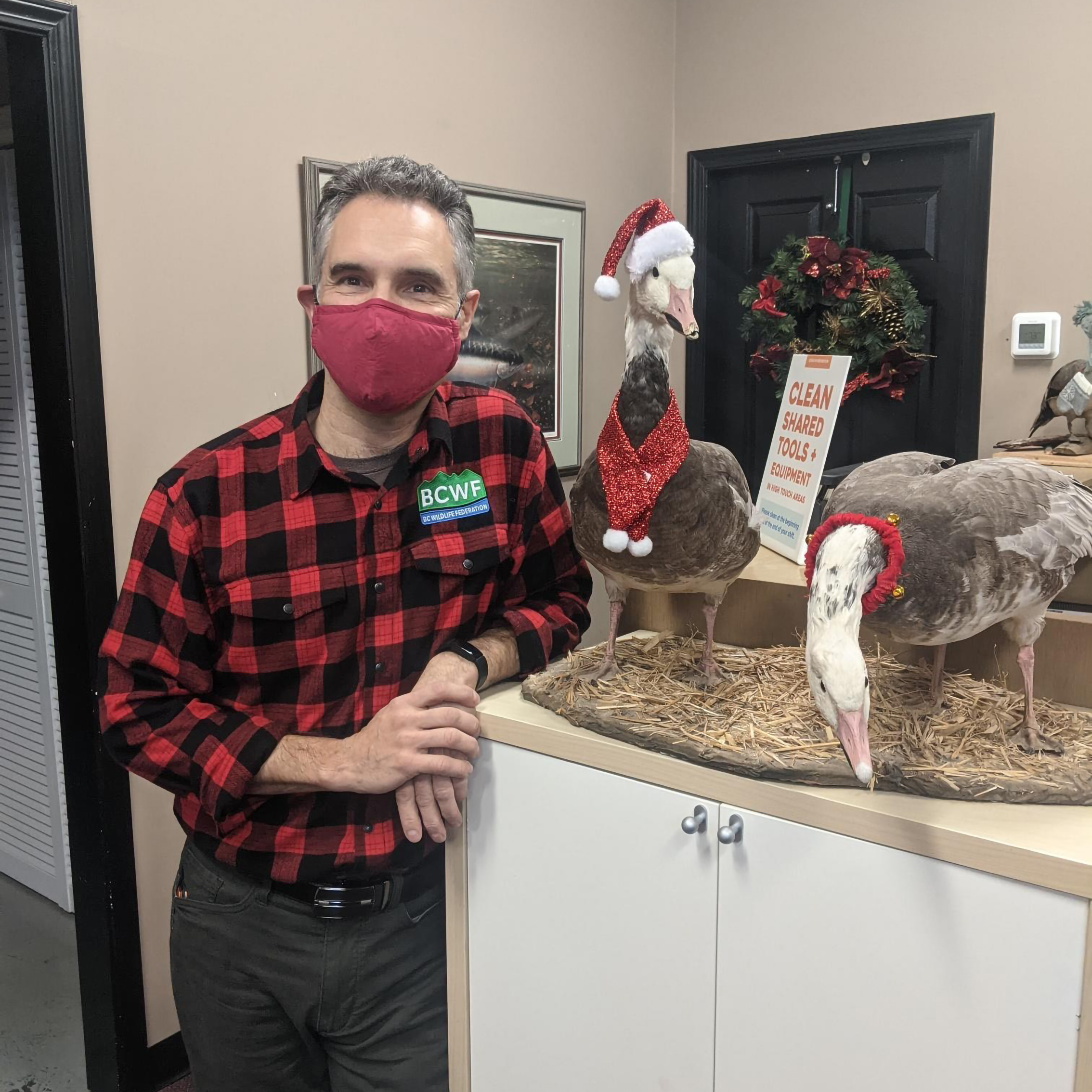United Nations Volunteers introduced International Volunteer Day in 1985 and communities worldwide have celebrated it yearly on December 5 to emphasize volunteers’ impact and efforts. Volunteers do not only dedicate their time to help worthwhile causes and others in need, but they are also leading social change worldwide.
This year’s International Volunteer Day theme is Together We Can Through Volunteering and sheds light on the difficulties and needs of volunteers during the COVID-19 pandemic but also highlights volunteers’ impact in their communities.
Thank you for making an impact!
The B.C. Wildlife Federation is incredibly grateful for its volunteers’ commitment and would like to take this opportunity to thank all our volunteers across the province who have given countless hours of their time for BCWF’s mission to protect, enhance and promote the wise use of the environment for the benefit of present and future generations. We couldn’t do it without your dedicated service.
Who are our volunteers?
The BCWF volunteers work in a variety of different capacities. They assist with our various programs and services, with youth and accomplishing hands-on-conservation work. They also assist in our Surrey office, helping with fundraising, advocacy, education, administrative support, special events and so much more.
To showcase our volunteers on this International Volunteer Day, we interviewed two of our volunteers.
Here is what they said:
Shanshan Tian, Volunteer with BCWF’s Wetlands Education Program: “Working closely with restoration experts, the First Nations communities and other volunteers on various projects helped me develop a sense of connection with the land and the wildlife.”

Why are you volunteering with the B.C. Wildlife Federation?
I was placed with BCWF as a Canadian Conservation Corps volunteer intern. I wanted to learn more about wetlands, wetlands conservation in B.C. and get my hands muddy in fieldwork! BCWF has and continues to provide me with incredible opportunities to try new things, express my love of the outdoors in creative ways and teach youth about the importance of conservation.
What do you enjoy about volunteering with the B.C Wildlife Federation?
I loved the opportunity to learn so much about wetlands and put new skills into action with the Wetlands Education Program. It was so cool to volunteer on restoration projects in the Kootenays as well as the Gulf Islands. Working closely with restoration experts, the First Nations communities and other volunteers on various projects helped me develop a sense of connection with the land and the wildlife. It takes a team to care for our rich and diverse wetlands!
What does conservation mean to you?
Conservation to me means being aware of both the small and big things in our daily lives that impact the land and wildlife that surround us. We must learn more about our impact then take action to make changes in our own lives. We become conservationists when we show others around us how they can do the same through our actions.

Tony Specht, Volunteer at the BCWF Office in Surrey: “Conservation, to me, is protecting what natural resources we have, through education, understanding and maintaining those resources for future generations to enjoy.”
Why did you want to volunteer with the B.C. Wildlife Federation?
After retiring from the military in 2016 I felt I needed some time away from work. Quite soon I realized that I was not meant to sit around, not doing anything. I had the opportunity to come to the BCWF office and check out some issues, put up some whiteboards, organize the warehouse, among other small ‘handyman’ type tasks. It felt like I was part of the “Team” from day 1. Being a member of the BCWF through my range memberships for the past few years made me want to give back a bit and help out.
What do you enjoy about volunteering with the B.C Wildlife Federation?
I really enjoy doing things that help people. With my technical background and Health & Safety training, I was able to do things that assisted the staff in the daily performance of their work. I was also able to see potential issues that may affect their workspaces and was able to either fix the problem or direct them to the professionals who could. At the end of the day, I could stand back and see that I achieved something that made someone else’s day much easier.
What does conservation mean to you?
I grew up in Southern New Brunswick on 300 acres of woodlot. My family still owns the land and I plan to return there someday to work the property in the manner that my father and the original landowners used it for the past 150+ years: farming, hunting, logging and recreation. If that property, and the thousands of acres that surround it, is not cared for in the proper fashion and wildlife and their habitat is not managed and protected, it cannot be sustained. Conservation, to me, is protecting what natural resources we have, through education, understanding and maintaining those resources for future generations to enjoy. I would love to have my nieces and nephews walk those same trails, explore and enjoy the land and see the deer, see a moose or a bear in the forest and not just while driving down a highway or on tv.
